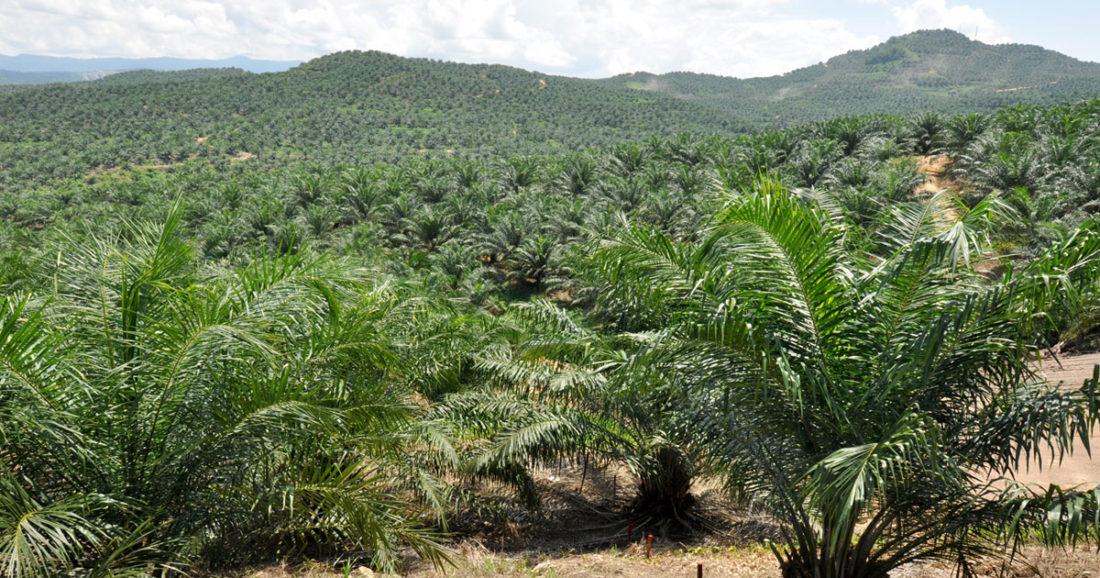Palm oil – What You Need to Know

Palm oil is highly versatile and is used in the food industry to fry foods and as an ingredients in biscuits, snacks and baked foods. It is also used in the production of biodiesel, animal feed, soap, shampoo, shaving gel, cleaning products and cosmetics. It is a highly efficient crop producing between six and ten times more oil per acre than soya beans for example.
Deforestation
Most oil palms grow in areas that were once tropical forests. Fires that are set in forests and on carbon-rich peatland to quickly clear land for plantations lead to significant greenhouse gas emissions with impacts seen at a regional and even a global scale.
Biodiversity
The vast majority of the world’s oil palms are grown on a few islands in Malaysia and Indonesia – islands containing some of the greatest biodiversity on Earth. The expansion of plantations into tropical forests has led to a huge loss of biodiversity with substantial numbers of elephants, rhinos, tigers and orangutans losing their homes. The negative impact on orangutans in particular has been well-documented and now both Bornean and Sumatran species are critically endangered.
RSPO
The main organisation responsible for the certification of sustainable palm oil is the Roundtable on Sustainable Palm Oil (RSPO), made up of producers, processors and traders, manufacturers, retailers, investors and NGOs. Around a fifth of the world’s palm oil is certified by the RSPO.
In late 2018, the RSPO adopted new standards prohibiting its member companies from clearing any type of forest for palm plantations. Previously RSPO standards did not prohibit deforestation or clearance of peatlands, nor did they require protection of landscapes with high carbon stocks.
The new standards come amid a growing consumer backlash that has prompted companies to make zero-deforestation commitments. However, this new development has been greeted with cautious optimism as concerns have been raised about the monitoring and enforcement of standards for RSPO certification.
Many companies are unable to say with confidence that the palm oil they use is not driving the destruction of rainforests or threatening endangered species. The United Nations Environment Programme (UNEP) supports collaboration between the international conservation community and palm oil developers in order to create sustainable strategies that will save fragile ecosystems and the species that inhabit them. Their 2016 report, Palm Oil Paradox: Sustainable Solutions to Save the Great Apes, includes steps required to ensure that the loss of biodiversity that has occurred in Southeast Asia are not repeated as oil palm plantations now expand into Africa.
Sustainable production of palm oil must include solid promises that any expansion growth does not come at the expense of forest habitats through direct or indirect deforestation.
Government regulation and public pressure are required to ensure that palm oil production and the expansion of oil palm plantations occurs in ways that protect biodiversity-rich ecosystems and prevents further deforestation. The scale of demand for palm oil is also a big issue as it’s now used in more products than ever before.
With consumers putting palm oil use under scrutiny, producers, manufacturers and retailers must all ensure they are embracing sustainable palm oil production. The power you have is to vote with your wallet!




